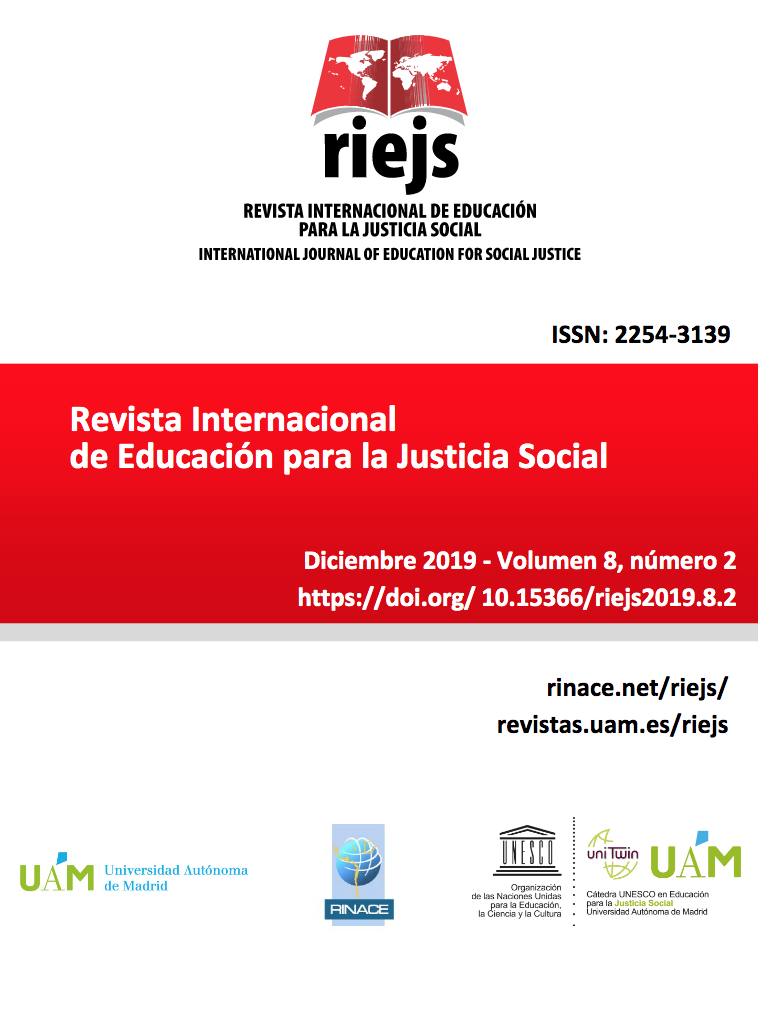Keywords:
Inclusive evaluation, Improvement, Learning, Diversity, Feedback.Abstract
It is true that in recent years a lot of progress has been made in a discourse of powerful and informed inclusivity, but the practices follow the inertia of an evaluation that starts from the fact that all students are equal. It continues to drag an evaluative culture based on the fact that learning is at the service of evaluation and teaching ends up subordinated to the latter. A deep-rooted reductionist and qualifying culture, resistant to change and that costs a lot to rebuild and transform towards an assessment for inclusion. In theory, we have gone from an evaluation focused on the verification of knowledge, certification, control, qualification, etc. and in which all students are equal to a consideration of the evaluation as an opportunity for learning and in which each student is unique and different. That is why, in this article we try to articulate the genuine nautical charts towards real inclusiveness in the educational centers, subsequently influencing in one of those letters, the one related to the inclusive evaluation to end with the presentation of some of the strategies that can make this assessment a reality in inclusive classroomsDownloads
References
Agut, N. (2010). La evaluación en un modelo de escuela inclusiva. Aula de Innovación Educativa, 191, 42-44.
Anijovich, R. y Cappelletti, G. (2017). La evaluación como oportunidad. Buenos Aires: Paidós.
Díaz Barriga, F. (2006). Enseñanza situada: Vínculo entre la escuela y la vida. Ciudad de México: McGraw-Hill.
Boud, D. (1995). Enhancing learning through self-assessment. Londres: Kogan.
Casanova, M. A. (2011). Evaluación para la inclusión educativa. Revista Iberoamericana de Evaluación Educativa, 4, 78-89.
Fernández Pérez, M. (1986). Evaluación y cambio educativo. El fracaso escolar. Madrid: Morata.
Giné, N. y Piqué, B. (2007). Evaluación para la inclusión. Siete propuestas en forma de tesis. Aula de Innovación Educativa, 163, 7-13.
Mellado, M. E y Chaucono, J. C. (2015). Creencias pedagógicas del profesorado de una escuela rural en el contexto mapuche. Actualidades investigativas en Educación, 15(3), art 4. https://doi.org/10.15517/aie.v15i3.20924
Monereo, C. (2009). PISA como excusa. Repensar la evaluación para cambiar la enseñanza. Barcelona: Graó.
Onrubia, J. (2004). Criterios psicopedagógicos y recursos para atender la diversidad en secundaria. Barcelona: Graó.
Orozco, I. y Moriña, A. (2019). Práctica docente para una pedagogía inclusiva en educación primaria: Escuchando las voces del profesorado. Aula Abierta, 48(3), art 6. https://doi.org/10.17811/rifie.48.3.2019.331-338
Panadero, E. y Romero, M. (2014). To rubric or not to rubric. The effect of self-assessment on self-regulation, performance and self-efficacy. Assessment in Education Principles, Policy and Practice, 21(1), 133-148. https://doi.org/10.1080/0969594X.2013.877872
Pérez Gómez. A. (2019). Ser docente en tiempos de incertidumbre y perplejidad. Revista Márgenes, 1, 3-17. https://doi.org/10.24310/mgnmar.v0i0.6497
Sanmartí, N. (2012). 10 Ideas: Evaluar para aprender. Barcelona: Graó.
Torrego, J. C. y Monge, C. (2018). Inclusión educativa y aprendizaje cooperativo. Madrid: Síntesis.
Zimmerman, B. y Schunk, D. (2011). Handbook of self-regulation of learning and performance. Nueva York, NY: Routledge.

